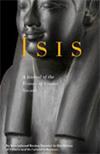什么是信息历史?
IF 0.9
2区 哲学
Q2 HISTORY & PHILOSOPHY OF SCIENCE
引用次数: 0
摘要
苏格拉底对话探讨了新兴信息史领域的目标和方法。哲学家阿斯帕西娅和她的学生苏格拉底在从港口城市比雷埃夫斯返回雅典的途中,开始讨论信息史这个合适的主题。经过一番讨论,他们认识到信息史并不是关于信息本身的。相反,信息史旨在提供对信息实践--包括收集、组织和保存等活动--本质的历史理解。最后,他们得出结论,信息史就是研究信息成为信息的过程。本文章由计算机程序翻译,如有差异,请以英文原文为准。
What Is Information History?
The aims and approaches of the emergent field of information history are explored in a Socratic dialogue. The philosopher Aspasia and her student Socrates are on their return to Athens from the harbor town of Piraeus when they begin discussing the proper subject of information history. After some deliberation, they come to realize that information history is not about information per se. Instead, information history seeks to provide a historical understanding of the nature of information practices—activities that include collecting, organizing, and preserving, among others. In the end, they conclude that information history is the study of information becoming information.
求助全文
通过发布文献求助,成功后即可免费获取论文全文。
去求助
来源期刊

Isis
管理科学-科学史与科学哲学
CiteScore
1.00
自引率
16.70%
发文量
150
审稿时长
>12 weeks
期刊介绍:
Since its inception in 1912, Isis has featured scholarly articles, research notes, and commentary on the history of science, medicine, and technology and their cultural influences. Review essays and book reviews on new contributions to the discipline are also included. An official publication of the History of Science Society, Isis is the oldest English-language journal in the field.
The Press, along with the journal’s editorial office in Starkville, MS, would like to acknowledge the following supporters: Mississippi State University, its College of Arts and Sciences and History Department, and the Consortium for the History of Science, Technology, and Medicine.
 求助内容:
求助内容: 应助结果提醒方式:
应助结果提醒方式:


